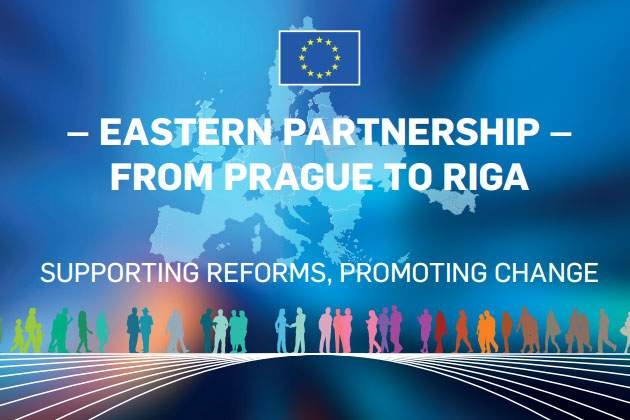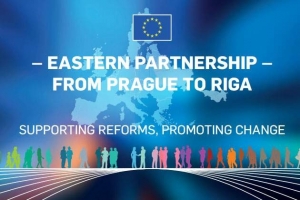Riga Summit Leaves Georgia without EU Visa-Free Regime
The Eastern Partnership Summit held on May 21-22 in Riga published its final declaration without granting Georgia a visa-free regime with the European Union. The document does not contain any specific future dates for the removal of visa requirements for Georgian citizens with the EU area, simply saying that a decision will be made after the European Commission prepares a report on implementation of the visa liberalisation action plan by the end of the year.
“The summit participants warmly welcome the progress made by Georgia and Ukraine respectively towards implementation of their Visa Liberalisation Action Plans as described in the latest Progress Reports by the European Commission. They look forward to the completion of the implementation of the 2nd phase of Georgia and Ukraine’s Action Plans once all benchmarks are fulfilled through the implementation of all required reforms,” the declaration reads.
The document also highlights that the fulfillment of all standards would allow the VLAP process to be concluded and the Commission to propose to the European Parliament and to the Council to exempt Ukrainian and Georgian citizens respectively from the visa requirements.
The document, recalling the Ceasefire Agreement signed on 12 August 2008 and the breached principles by Russia, omits the so-called agreement signed by Russia with Georgia’s occupied regions of Abkhazia and South Ossetia. In an abstract way, the declaration reads: “the acts against Ukraine and the events in Georgia since 2014 have shown that the fundamental principles of sovereignty and territorial integrity within internationally recognized borders cannot be taken for granted in the 21st century on the European continent.”
“In our case, both in private and public conversations, it was reaffirmed that Georgia made very significant progress,” German Chancellor Angela Merkel and the French President Francois Hollande noted at bilateral meetings with Irakli Garibashvili, Georgian PM. Garibashvili himself assesses the developments as a positive political message from the EU leadership.
Georgia Today’s Zviad Adzinbaia:
The Eastern Partnership Summit 2015 was widely expected to show Russia’s Putin that Europe is no longer enlarging its borders eastward as it did in 2004 when it took 10 European states from Russia’s sphere of influence, including the Baltics. Georgian experts assume that the Georgian government did not do enough to make a significant move in this process. Moreover, the government’s internationally passive stance is named by local analysts as one of the explanations why support for the Georgian Dream (GD) is diminishing.
GD, in terms of Georgia’s security, has removed the country from almost all international radars. Indeed, when talking about diverse reforms where Ukraine languishes behind Georgia, the European structures have many times mentioned the two countries together. In summation, the only way the Georgian government can progress here is by successfully implementing the requirements of the Association Agreement, by advancing economically and seeking guarantees for the country’s security.
Zviad Adzinbaia












